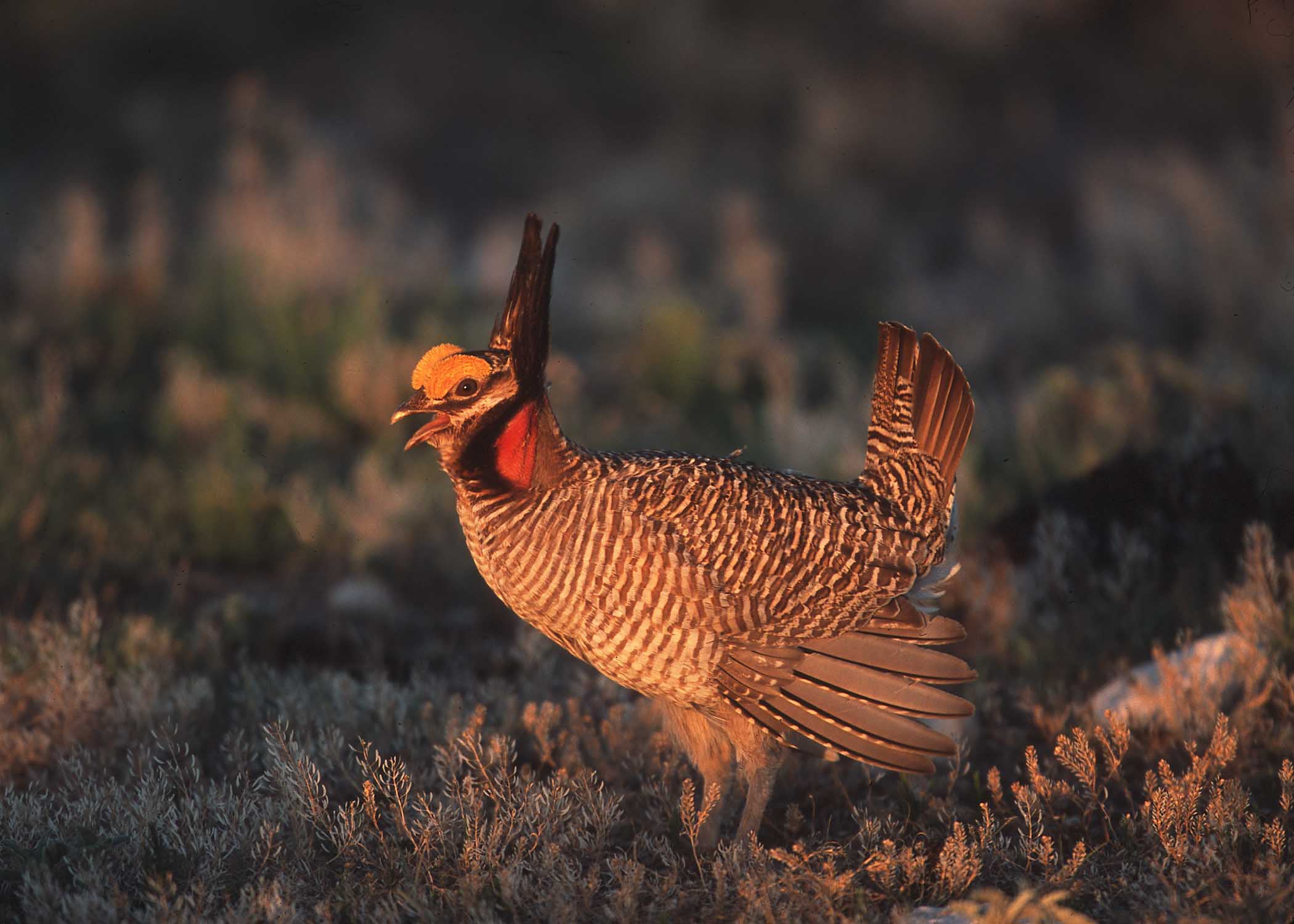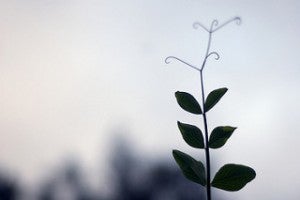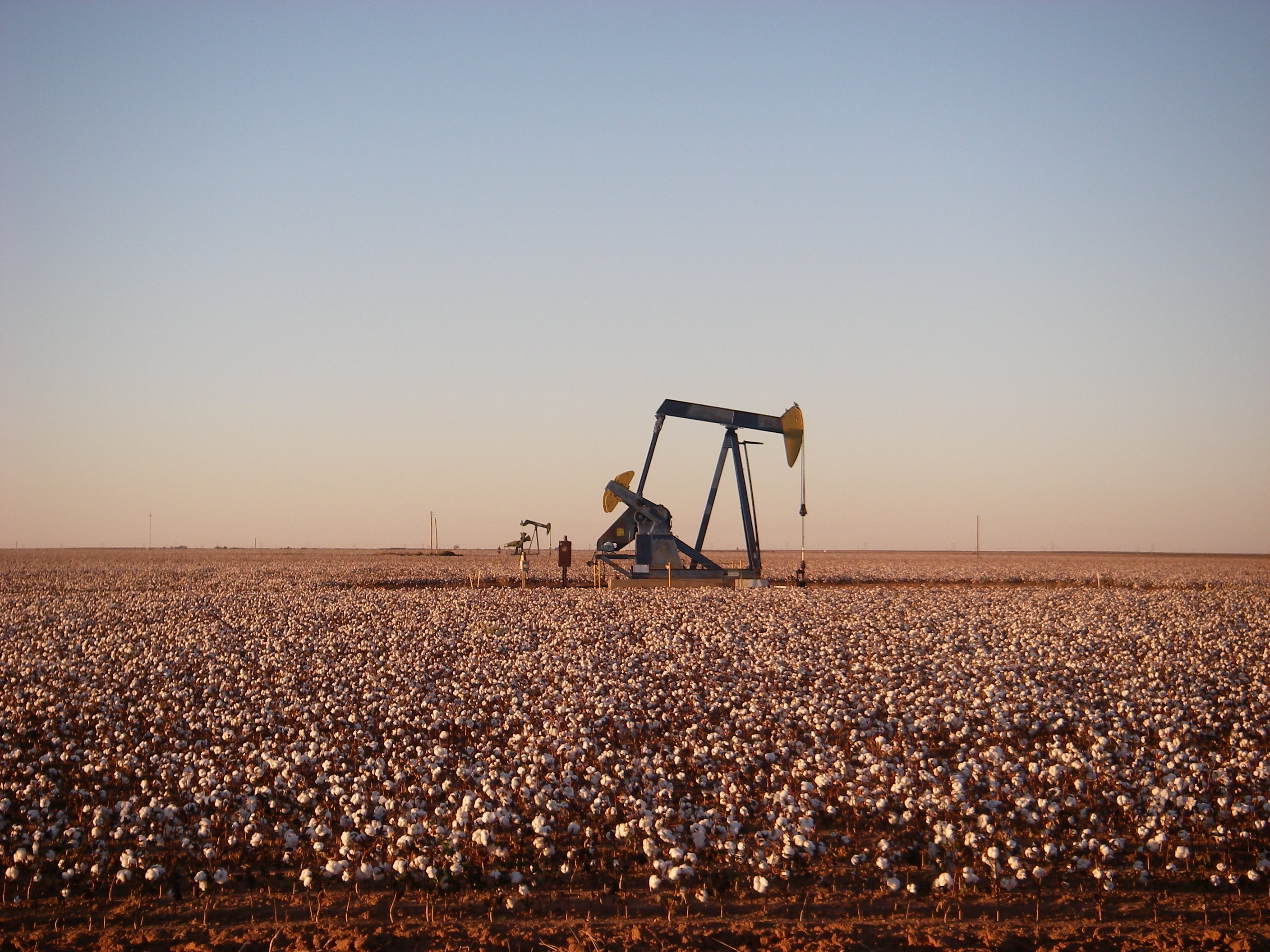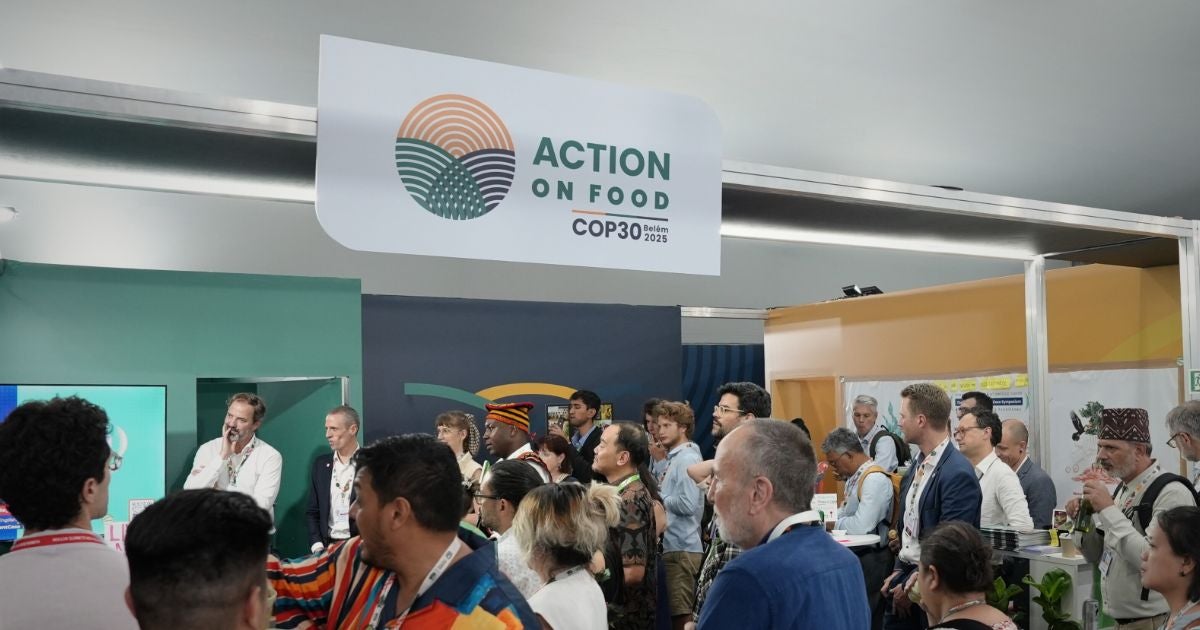What if God wants the lesser prairie-chicken to go extinct?

A version of this piece previously ran as an op-ed in the Houston Chronicle.
A few years ago, I was invited by Texas farmer David Cleavinger to visit his family’s farm near Amarillo. This was during a period of time when my organization, Environmental Defense Fund, was deeply involved in conservation efforts for the lesser prairie-chicken, a colorful bird whose habitat is in decline throughout its five-state range, which includes the panhandle of Texas.
David picked me up at the airport and asked if we could make a quick stop on the way to his farm. That stop turned out to be at local radio station KGNC, where David had arranged for me to go on air and talk about wildlife conservation with a particular focus on the local implications for efforts to revive the lesser prairie-chicken.
I agreed to join the show with some trepidation, but it quickly subsided as we got into a lively discussion with the host, James Hunt, and several listeners. Toward the end of my appearance, a caller asked a surprising and provocative question – What if God wants the prairie-chicken to go extinct?
I was briefly stymied. I found myself in a tricky spot: being asked to expound on God’s will for the lesser prairie-chicken. The caller had no idea about my faith and, while I’ve kept that faith relatively low profile during my career as a conservationist, I realized I had a great opportunity to outline my thoughts on environmental theology – a topic I’ve actually thought about quite a bit.
Protecting God’s creation
My view on this question is rooted in my Christian faith. A fundamental tenant of that faith holds that “God created the heavens and the earth” and that the earth reflects the genius of the creator.
The book of Genesis says that after God finished his creative process, he reflected on it and declared that it was “very good.” So the first principle of environmental theology rests in the reality that God created diversity of life, is responsible for the complexity of ecological dynamics and systems, and that they are “very good” and therefore worthy of protection.
Redemption for the planet

Another tenant of the Christian faith is that the earth and humanity are experiencing a sickness driven by sin. This sickness extends to our human-to-human relationships and also to our relationship with the earth.
But chronically broken human relationships and ecological devastation are not part of God’s plan for creation.
The narrative flow of the Bible tells the story of redemption – the story of how God, through the death and resurrection of Jesus Christ, intends to restore perfect harmony in his creation. Romans chapter 8 says that the “whole creation has been groaning” and that “creation itself will be liberated from its bondage to decay.” This leads to a second principle of environmental theology, which holds that Christians have a responsibility to lead their lives and make choices that contribute to God’s purpose for redeeming his creation to himself.
Tending the garden
A third principle rests in the biblical concept of stewardship, which echoes throughout the scriptures.
A stewardship ethic requires that the freedom we have to exploit the earth must be balanced with the obligation to conserve.
Much has been made in certain Christian circles of God’s charge in Genesis for humans to have “dominion” over the earth. But the sweep of teaching in the scriptures points towards an ethic that has been called “creation care,” where our choices as humans are driven by a strong obligation to tend to the earth in ways similar to a gardener tending to his or her garden.
Choices made out of greed, selfishness or short-sightedness that lead to destruction of God’s creation work against God’s redemptive purpose.
Does this ethic prohibit use of the earth for human benefit? Without doubt, it does not. Land, water, air and other resources were provided to allow a rich life. But a stewardship ethic requires that the freedom we have to exploit the earth must be balanced with the obligation to conserve resources for future generations and to avoid irreversible harm, including extinction.
The fate of the lesser prairie-chicken

With this Christian ethic in mind, I have committed myself to a career that serves to sustain God’s creation. One of the ways I strive to do this is to help prevent extinction of all species, including the lesser prairie-chicken.
Just last month, federal courts upheld a Texas ruling that stripped the chicken of its previous federal protection under the Endangered Species Act. The decision whether or not to list the bird has been a tumultuous and highly politicized ongoing drama.
That’s because this particular bird’s habitat is nestled smack in the middle of one of the highest energy rich regions of the United States – the Permian Basin. But which came first – the chicken or the oil rig? Would God rather we save jobs, or birds?
It’s trade-offs like these that make conservation a difficult task. I believe we can strike a balance between thriving human communities and environmental stewardship. Finding that balance makes this work incredibly challenging but rewarding when we get it right.
So, in the end, I told the caller my view that God does not want the lesser prairie-chicken to go extinct. I think he wants the lesser prairie-chicken to thrive. And I think he wants us all, particularly Christians, to take on a responsibility to prevent the loss of God’s creation.
Related:
My quest to balance nature and the agricultural economy >>
Lesser prairie-chicken numbers are up. Is it good conservation or just good weather? >>












